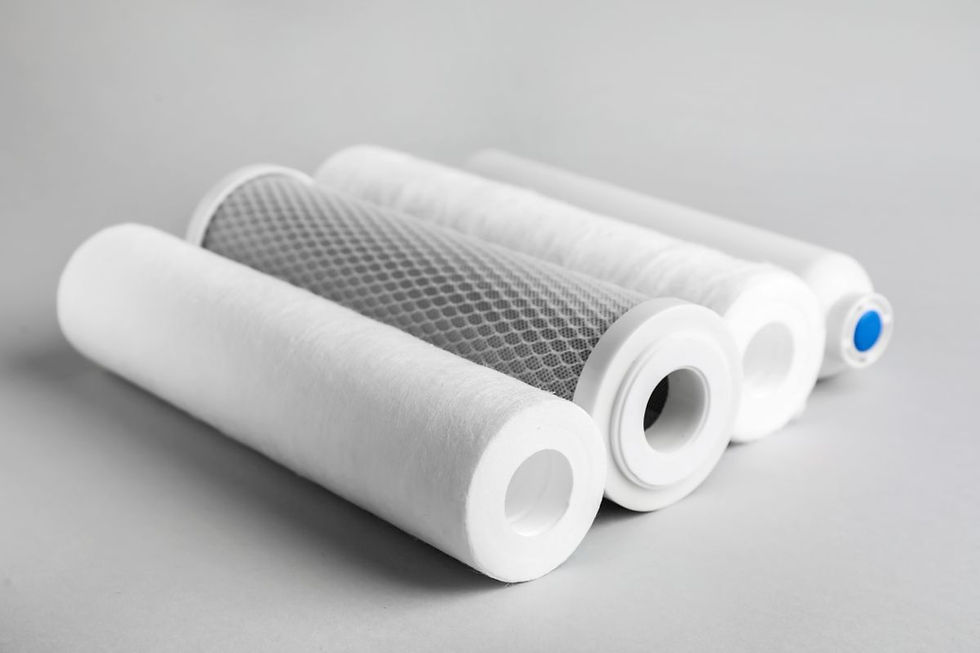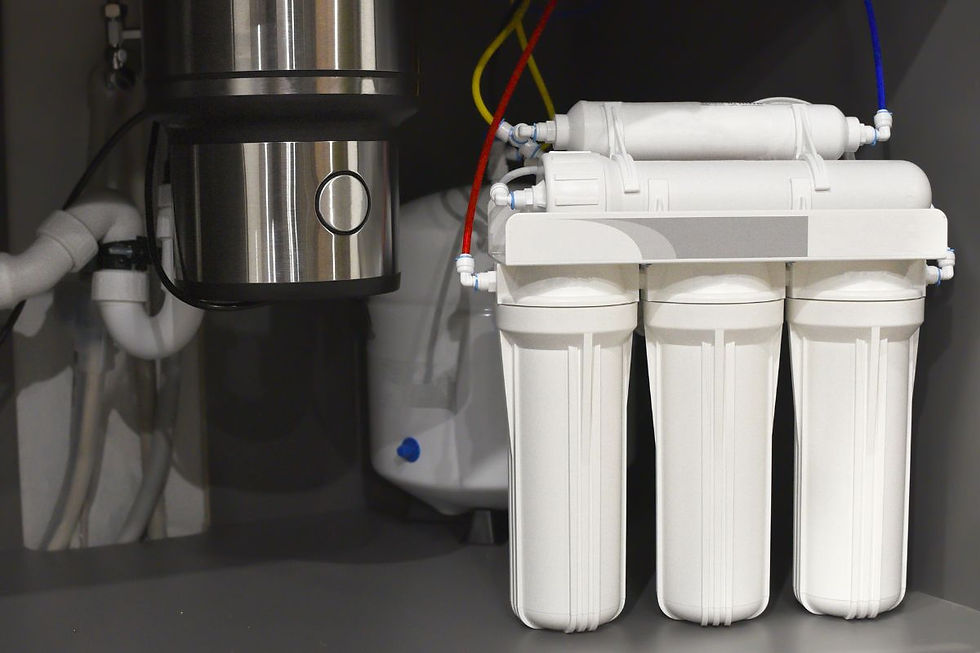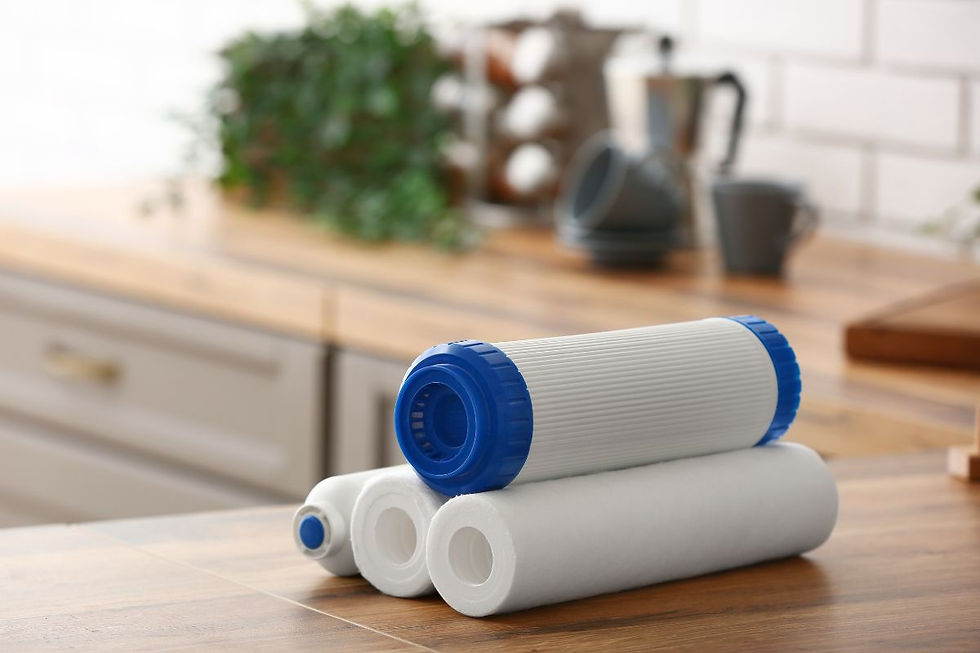Best Water Filters in 2025 (Safe, Non-Toxic & Long-Lasting)
- Our Editors – Zenda Guide

- Aug 5, 2025
- 3 min read
Updated: Sep 21, 2025

This post contains affiliate links. As an Amazon Associate, Zenda Guide earns from qualifying purchases at no extra cost to you. We only recommend trusted products that meet our quality standards. Learn more about how we work
Clean water is a non-negotiable. But between chlorine, PFAS, fluoride, and even microplastics, tap water quality isn’t always as safe as it seems. And with so many filters on the market — from pitchers to reverse osmosis systems — it’s hard to know what actually works.
So we tested and researched the best water filters of 2025 based on what matters: non-toxic materials, filtration power, durability, and user trust. Here’s what we found.
What to Look for in a Water Filter
Filters That Actually Remove Contaminants
Look for certifications like NSF/ANSI 42, 53, 58, and 401, which cover chlorine, lead, VOCs, fluoride, and microplastics.
BPA-Free & Safe Materials
Avoid plastic-heavy units with unclear materials. Opt for stainless steel, food-grade BPA-free plastics, and durable ceramic elements.
Long-Term Costs & Maintenance
A cheap filter that needs frequent replacements can cost more (and waste more) over time than a well-built system.
Zenda’s Top Water Filter Picks for 2025
Explore these tested and trusted options — each one meets our standards for safety, performance, and long-term value.

Best Overall: Berkey Countertop Water Filter System
A gravity-powered favorite that removes over 200 contaminants — from chlorine and bacteria to heavy metals and fluoride (with optional filters).
Built from stainless steel. Long-lasting filters. Great for daily use or off-grid living.

Best Reverse Osmosis Filter: APEC ROES-50 5-Stage Under-Sink System
Powerful RO filtration that clears fluoride, arsenic, lead, nitrates, and more. WQA certified and user-approved.
Ideal for homes with high contaminant loads or immune concerns.
Best Filter Pitcher (Better Than Brita): Epic Pure or Clearly Filtered Pitcher
Easy to use — but with stronger filtration. Removes PFAS, microplastics, and lead.
Certified. BPA-free. Great for smaller households or renters.

Best Whole House Filter: Express Water 3-Stage Whole House Filtration System
Delivers clean water from every tap with minimal maintenance. Removes rust, chlorine, VOCs, and heavy metals.
Best for families or homeowners who want full-home coverage.
Best Portable Filter: LifeStraw Go or GRAYL GeoPress
Compact, powerful, and ready for adventure. These travel-ready filters remove bacteria, parasites, and microplastics — with no electricity or plumbing.
Hikers, travelers, and emergency preppers: this one’s for you.
At a Glance: Top Picks for Every Home
Product | Type | Best For | Shop |
Berkey Countertop System | Countertop | Everyday use & gravity filtration | |
APEC ROES-50 | Reverse Osmosis | High contaminant removal | |
Epic Pure Pitcher | Filter Pitcher | Budget + PFAS-free option | |
Express Water WH300SCKS | Whole House | Large families & full-home coverage | |
LifeStraw Go | Portable | Travel, hiking, emergencies |
FAQ: Water Filters & Clean Drinking Water
What is the best filter for drinking water?
It depends on your needs — but countertop filters like Berkey or under-sink RO systems like APEC offer top-level protection.
Which is the best water filter to buy?
If you want the highest filtration, choose a reverse osmosis or gravity-based system. For everyday simplicity, opt for a pitcher or countertop model.
Which water filter removes the most contaminants in the world?
Multi-stage RO filters like APEC and Berkey systems with fluoride filters are top-tier.
What is the healthiest way to filter tap water?
Using a filter that removes contaminants while preserving essential minerals — or adding remineralization after RO.
Which filtration method is best for drinking water?
Reverse osmosis for maximum filtration; activated carbon for taste and chlorine.
What filter removes microplastics?
Filters with 0.2 micron or smaller elements, like LifeStraw, Epic Pure, or Berkey.
What are the disadvantages of drinking filtered water?
If over-filtered (like some RO systems), water may lack essential minerals. Also, filters must be replaced regularly to stay effective.
Is it better to filter tap water or drink bottled water?
Filtering tap water is often cleaner, cheaper, and better for the planet.
What water filter does not remove minerals?
Activated carbon filters usually retain minerals; RO systems remove them unless re-added.
Does boiling water remove microplastics?
No. Boiling does not remove microplastics or chemical contaminants.
Does LifeStraw remove microplastics?
Yes — LifeStraw filters remove microplastics and bacteria.
Is reverse osmosis good for you?
Yes — if you're in a high-contaminant area. Just ensure remineralization for long-term health.
Final Thoughts: Is a Water Filter Worth It?
Absolutely. A high-quality water filter is an investment in your health — and in reducing your household’s plastic use over time.
Related Articles
Want more guides like this?
We send one thoughtful newsletter each month — no fluff, no spam. Just helpful picks, simple swaps, and conscious living tips that make sense.
Join the Zenda Guide community and stay in the loop with what actually matters.







Comments